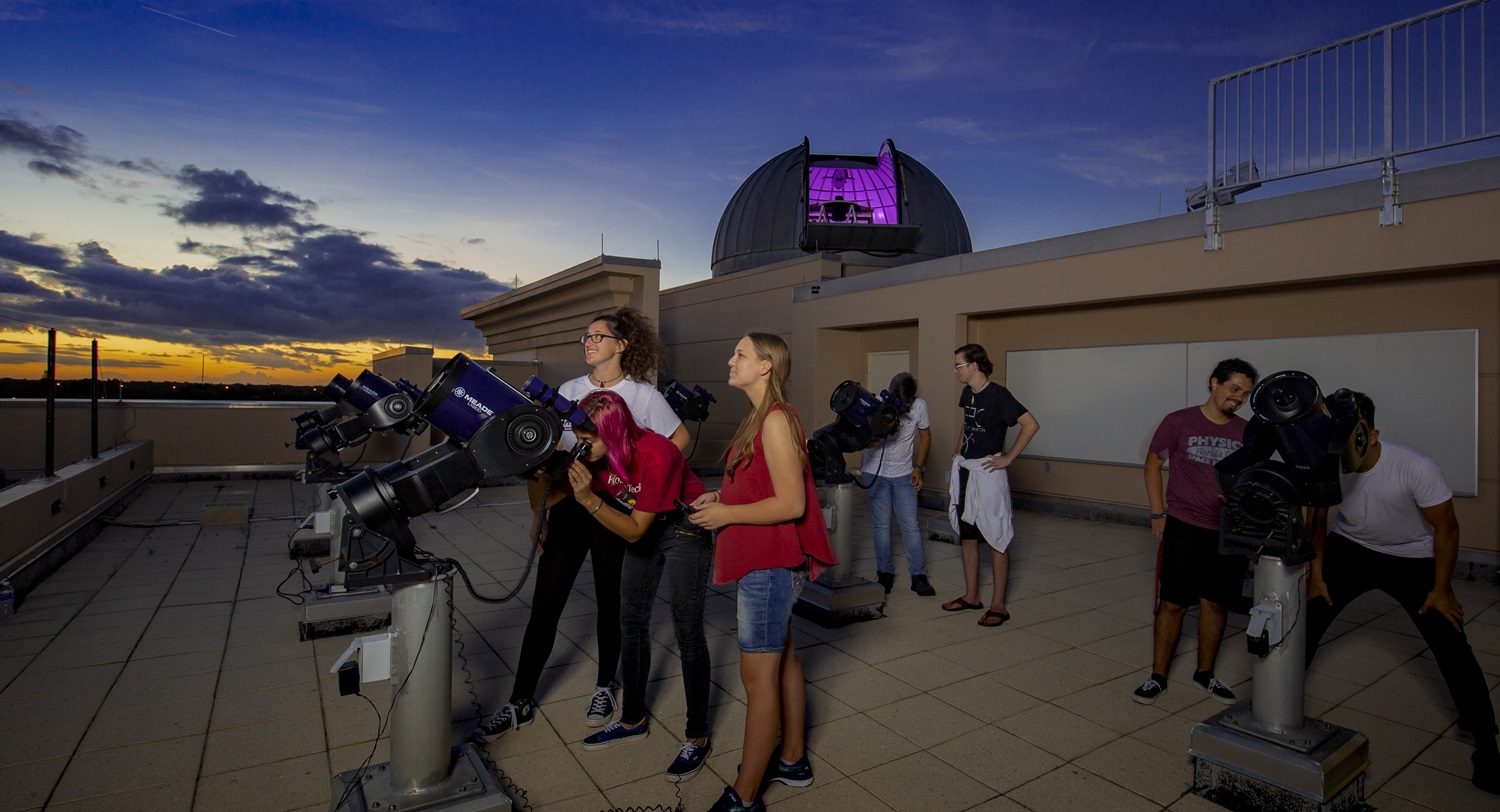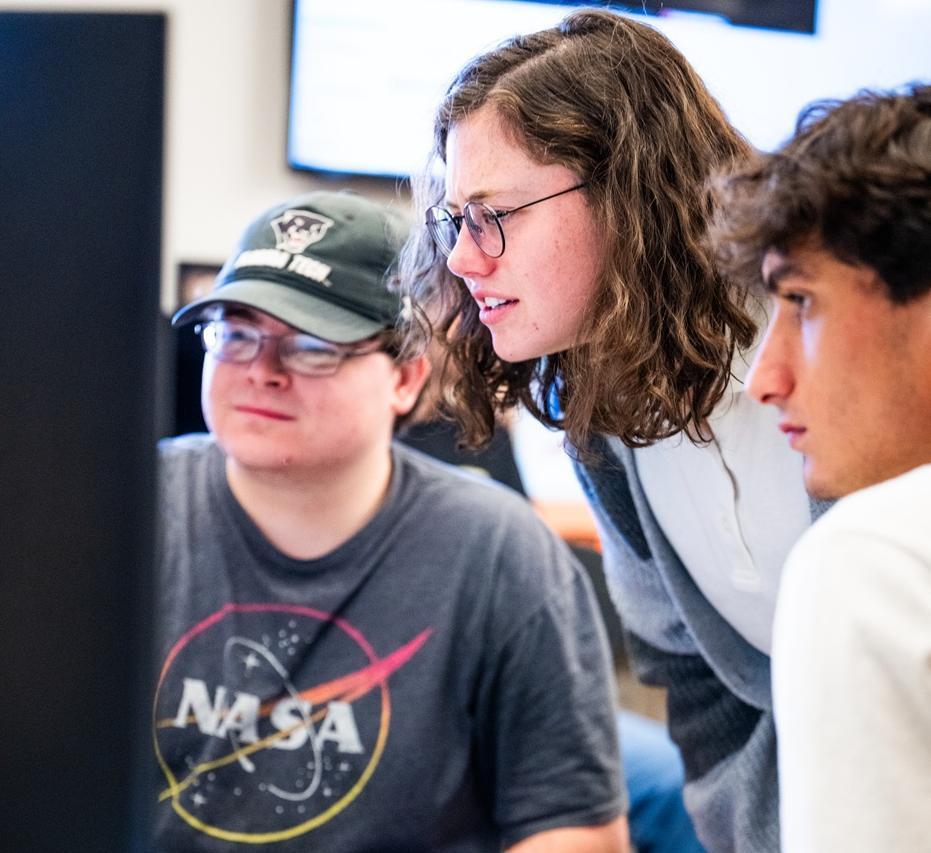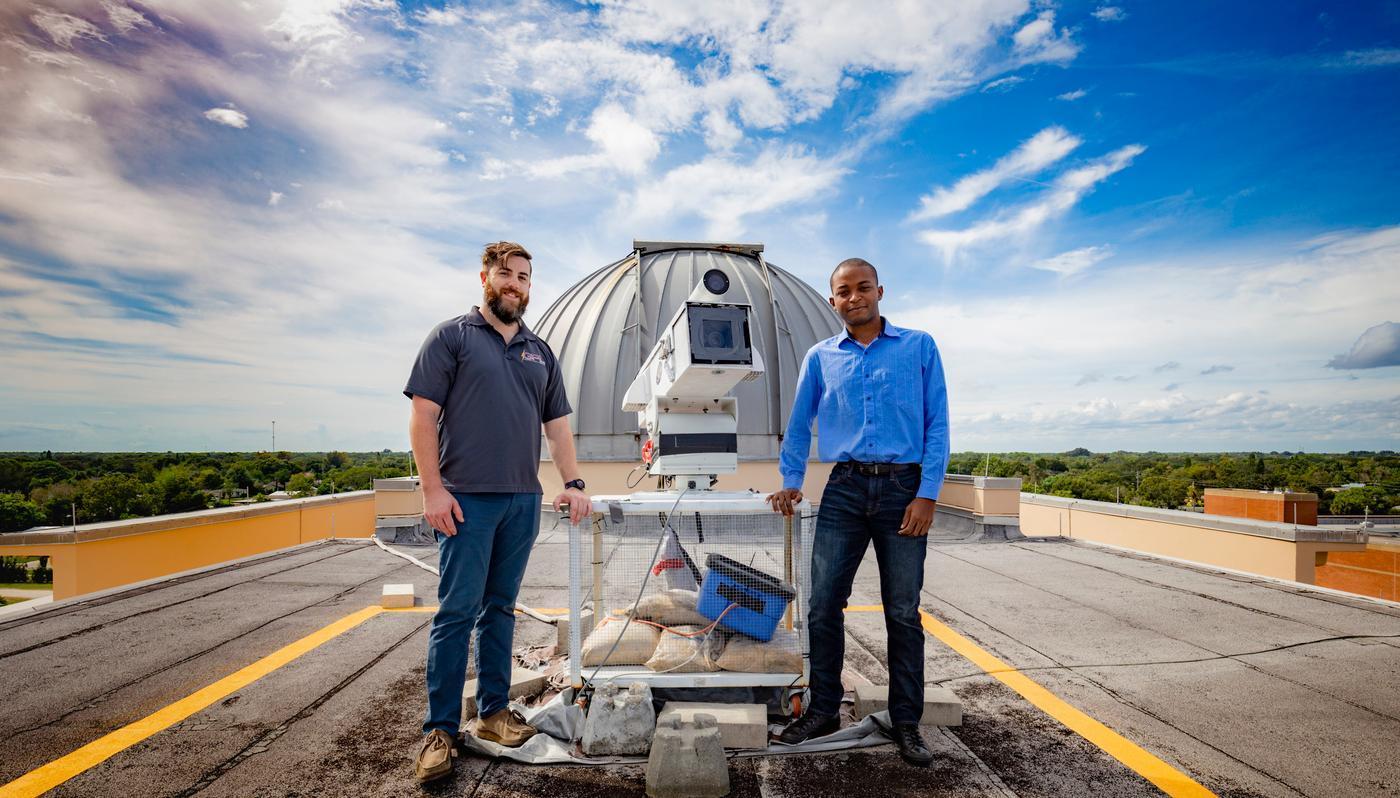The space sciences program at Florida Tech combines the benefits of small class sizes with exceptional opportunities typically found at larger universities.
Close mentorship from professors fosters a personalized academic experience, while internships and research projects align with students’ career goals. Advanced topics include cosmology, high-energy astrophysics, solar energetic particles, thunderstorm and lightning physics, black holes and exoplanets.
Access to state-of-the-art laboratories and connections to numerous high-tech and space-related companies make research at Florida Tech truly unique.

 Give to Florida Tech
Give to Florida Tech 


